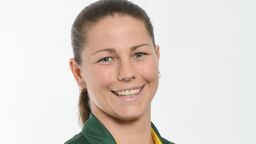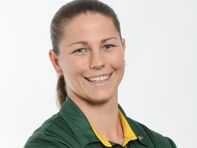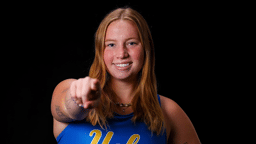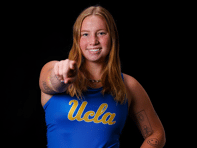Olympic rower Robbie Manson was facing a mini-crisis as he worked out recently in his home gym in New Zealand.
“My good waterproof headphones have stopped working, which is a bit of a pain,” Manson said from his home in Cambridge on New Zealand’s North Island.
Having working headphones is a must for an elite athlete working out solo in a utilitarian gym inside his garage instead of being on the water training with teammates and coaches.
“The hardest thing at the moment is to stay motivated doing the same thing day after day being stuck in one place, but in the long run it’s the best thing to do,” Manson said.
What Manson is experiencing is being replicated around the world for Olympic athletes — both those who qualified for Tokyo and those who were hoping to this spring — whose training demands dwarf those of people staying at home and just trying to keep in shape.
For Manson, 30, this time of the year (fall in the Southern Hemisphere) was to be the final push for competing in the 2020 Olympics in Tokyo as part of New Zealand’s double sculls entry. But all the prep work came to a halt when the Games were postponed until 2021 by the coronavirus and New Zealand joined the rest of the world in a lockdown.
So now Manson trains alone — six sessions a week of 90 minutes each on a rowing machine, then more training on a stationary bike, plus weightlifting sessions. It’s a solitary existence in a space where the scenery never changes. His home gym does allow him to do much of the same training as being outside, putting him at an advantage over Olympic athletes in many other sports.

“I can replicate a lot of the on-water sessions on the rowing machine,” he said of the program that is being followed by another 40 or 50 Olympic-caliber rowers in New Zealand, a country where rowing is a major sport and medals are commonplace. Manson is an acclaimed rower and two-time Olympian who has won world cup titles, set records and been named Outsports Male Athlete of the Year for 2017.
“We can still stay reasonably fit,” he said. “The hardest thing is the monotony, the same thing every day on your own without your teammates around to support you and push you on. It’s a lot nicer and more interesting being out on the water.”
As he works out, Manson says it’s hard to concentrate on a movie and he will often watch races for “mild inspiration.” The best way to make the time go faster is music, which is where the headphones come in handy. Manson’s tastes run from the latest pop songs to music from the ’80s and ’90s, along with musicals and show tunes. But even he’s getting sick of his playlist and many times just turns on the radio.
Manson, who is openly gay and came out publicly in 2014, realizes he doesn’t have a lot to complain about compared to many others. For one, New Zealand subsidizes its Olympians, so working out is Manson’s job and he can devote all his energy to his sport. This is in contrast to the U.S., where athletes in less-publicized sports have outside jobs and training has to work around their schedules.
He lives with two friends, who are also rowing coaches, so shop talk comes naturally when one is confined to home. Like everyone in lockdown, Manson misses seeing his family and friends, though that is changing. The worst appears to be behind in New Zealand as this week the government announced zero cases of community transmission and is easing restrictions, though many will remain in place for now.

Manson and rowing partner Chris Harris had a successful last season and earned the right to represent New Zealand in Tokyo. Both were focused on the Games starting in July, until the pandemic hit.
“I had an amazing summer this year and I’m in a double with the same partner I rode with in 2015 and 2016 and it went amazingly well,” Manson said. “To be in best of form and have it called off or postponed and then have to go through it all again and all of the training again to get back to that same form is a little bit disappointing.”
Manson said postponing the Games was an easy call and found a silver lining — he and Harris had reunited as a team after four years apart and with an extra year to prepare for the Olympics, “perhaps next year we can be even faster.”
He is not sure if he and Harris will be guaranteed to keep their slot for the Games in 2021 (assuming they are held), but his job is to stay focused and ready, continuing to train indoors until he is allowed again to do so outdoors when life can return to some form of normality.
“We reformed this amazing combination and has been going so well that we were excited to see what we could do this year and now it has pushed that finish line out,” Manson said. “There’s a huge difference between three and four months [from the Games] and 15 and 16 months. It’s a long time to stay focused and stay motivated.”







































